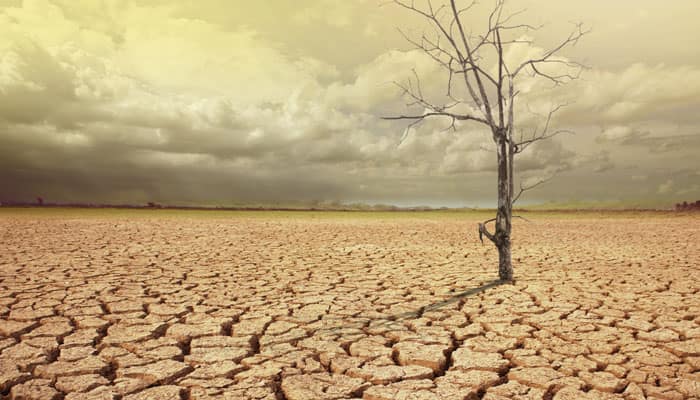Ashok Kumar/OneWorld South Asia
Experts representing different part of the world urge for localised solutions to fight the global challenge of climate change.
New Delhi: Developing countries might be more vocal about climate change but it is a known fact that its impact would be more prolonged and severe on the developing countries in the future, warned Y S Choudhary, India’s Minister of State for Earth Sciences.
Chaudhary called for Indianised solutions in the country to deal with the menace of climate change, adding there was not a single country that was not affected by climate change. He was speaking at the fourth National Conference on Climate Change ‘Mitigation Initiatives & Adaptation Challenges Convergence & Action Agenda’ in New Delhi.
Given the threat of impending disasters due to climate change, the minister urged for devising contingency plan for climate change. He also felt the need for building a permanent sustainable disaster management system in the country.
The National Action Plan on Climate Change has been adopted by India to address the issues of mitigation and adaptation, Chaudhary added.
He called for an integrated approach to tackle climate change and cautioned that such a big challenge cannot be tackled by one government or a nonprofit. "The Central government, the state government, bankers and the civil society can come together and work out various models," he stated.
Mahesh Babu, Managing Director, IL & FS Environmental Infrastructure & Services, said that India being one of the most vulnerable countries, it should immediately initiate steps to address the issue of climate change. “We can avoid mistakes that were committed by the developed countries like China which are now investing huge amounts to get rid of the development mess,” he said.
Talking about Delhi’s pollution burden, Babu said that the challenge of waste management has to be tackled at the local level. “Waste management provides huge opportunities by recycling. The problem of solid waste can be tackled if the construction and chemical industries come together for providing an integrated solution to the complex problem of managing the municipal waste,” he said.
M Francois Richier, French Ambassador to India, said that globally there is a broad consensus on the threat of climate change. He said that fighting climate change would be an engine for growth in future. He also impressed on the need for investing into smart grid.
Citing the example of Gujarat, he said the state could be a role model for reducing its dependency for energy on fossil fuels like coal by investing into renewable sources of power.
Richier said the climate change conference in Paris later this year should outline a ‘universal agreement’ of all countries' commitment to bring down rising temperature. The conference should endeavour to address various situations of carbon emission faced by different countries, he said.
“India has a high carbon emission but very little per capita emission, a factor which needs to be taken into account before reaching the universal deal. Despite, growing investment in renewable sources of energy, coal will remain an important source of energy for India,” he stated.
Talking about initiatives in France on the environmental front, he said that the country is going to ban plastic bags.
Norwegian Ambassador Eivind S Homme said that evolving a policy for making energy sector a low carbon emission industry is the major challenge in the present times.
Stressing on the need for adopting a smart mix of policies for tackling the challenge of climate change, he said, "We don't have to choose between high economic growth or fighting poverty and fighting climate change. Both can be achieved together by focusing on three core goals including improving resource productivity, increasing investment in resource infrastructure and promoting innovation".
Dr K D Gupta, Chairman, ASSOCHAM National Council on Climate Change, said that India is plagued by climatic disasters that continue to wreak havoc on its economy.
He said 13% of the geographical areas in India are prone to floods. “Sixty eight per cent of the country’s net sown area is drought prone while 25% of the geographical area is prone to landslides,” he said.
















